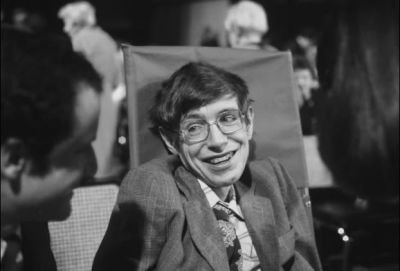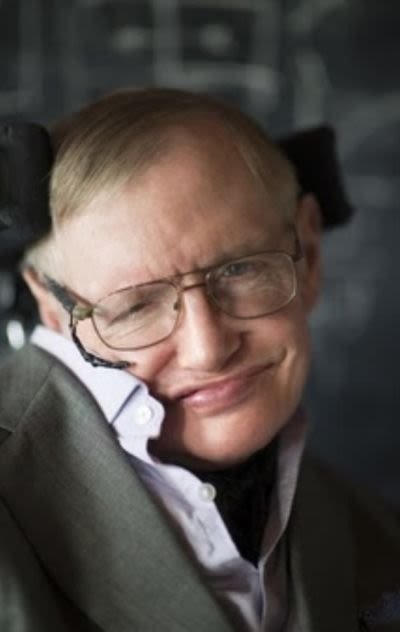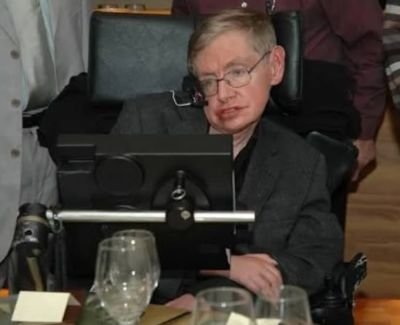
Stephen Hawking thoroughly enjoyed reminding groups of onlookers that he was conceived three hundred years to the day after the demise of Galileo, on January 8, 1942. Envision how Hawking would have responded might he be able to have realized that he would pass on March 14, 2018—the hundred and thirty-ninth commemoration of Albert Einstein's introduction to the world.
I never became more acquainted with Professor Hawking, but I ended up grieving the news of his going as though I had lost a nearby partner. Like such a significant number of individuals of my age, I experienced childhood in a world in which Hawking's name was almost as natural as Einstein's. Somehow, I've been thinking about his thoughts for my whole vocation.
Peddling's breakaway success, "A Brief History of Time," showed up in 1988, while I was in secondary school. At that point, I was at that point submerged in well known books about the miracles of current material science; the eighties saw a blast in high caliber, economical soft cover books, welcoming perusers to test a portion of the choicest riddles of quantum theory or respect the somber greatness of Einstein's general hypothesis of relativity. However the arrival of Hawking's book felt unique. It turned into a sensation, looked for by individuals who had never seen the pile of before books. Peddling's was a book to possess and, for a few, to peruse.
"A Brief History of Time" offered a voyage through Hawking's most huge commitments to the field. His soonest endeavors focused on relativity, the work that had pushed Einstein himself into the spotlight, decades sooner. As indicated by the hypothesis, space and time are as unbalanced as a trampoline. They can bend or distend in the nearness of issue and vitality. Their ebb and flow, thusly, offers ascend to every one of the wonders we connect with gravity. Attractive energy, in this line of reasoning, isn't a power—the result of one question pulling on another, as portrayed by Isaac Newton's conditions—yet a mere consequence of geometry.

Selling's first real commitment, which he started to create in his Ph.D. exposition, at the University of Cambridge, was basically to push Einstein's thought until the point that it broke. Imagine a scenario in which matter were to end up stuffed so thickly inside a locale of room that space-time itself cracked. Selling, alongside his partner Roger Penrose, illuminated the conditions under which answers for Einstein's conditions must degenerate into a "peculiarity," actually a final turning point. The Penrose-Hawking peculiarity hypotheses, as they came to be known, show that under outrageous conditions—in the focuses of dark openings, say, around which space and time twist so seriously that not in any case light escapes—space-time can simply end, an inestimable variation of Shel Silverstein's walkway.
The peculiarity hypotheses apply to purported established space-times—that is, to depictions of room and time that overlook quantum hypothesis, that other extraordinary mainstay of present day material science. Not long after subsequent to Hawking finished his Ph.D., in 1966, he started to assault inquiries at the troublesome limit between relativity, which depicts the conduct of the biggest protests in the universe, and quantum hypothesis, which administers matter at the nuclear scale. He unearthed his most popular finding in the mid-nineteen-seventies, while baffling through situations in which sets of quantum particles may end up close to a dark gap. If one somehow happened to fall in while the other circumvented, Hawking proposed, the dark opening would show up, to a far off spectator, as though it had discharged radiation—exactly what dark gaps were not supposed to permit. As it were, "dark gaps ain't so dark," as he place it in "A Brief History": they shine. Also, this radiation could shape a dark opening's destiny. In galactic timescales, the dark opening could dissipate, its once-colossal mass leaking out as grandiose static.
These bewildering thoughts—a balance of odd and energizing—brought forth numerous others, some of which keep on challenging the material science group right up 'til the present time. Hypothetical physicists still think about whether data hurled into a dark opening truly vanishes until the end of time. Must it be mixed past any conceivable reproduction, with just a negligible shower of radiation remaining? Such a procedure would disregard quantum hypothesis, for which a consecrated decide is that data can be neither made nor devastated. Scores of scholars have turned Hawking's contentions around and jabbed them from each edge, endeavoring to discover where the feeble joint may lie in the uneasy blend of quantum hypothesis and relativity. In the mean time, nearer to my own exploration, Hawking's thoughts regarding the Big Bang and whether our universe could have risen up out of an underlying peculiarity keep on animating examinations in cosmology.
Broadly, Hawking's portrayals of dark gaps and the Big Bang in "A Brief History of Time" came joined with stories of his own life. He was determined to have the degenerative ailment amyotrophic horizontal sclerosis (ALS) in 1963, at age twenty-one—similarly as he was starting his doctoral investigations—and was relied upon to live just a couple of more years. In his book, Hawking composed of his assurance to go ahead, supported by meeting Jane Wilde (whom he wedded, in 1965) and, soon, by the entry of their three youngsters. Clearly these triumphs—the sheer, willful certainty that Hawking kept on living—drove the interest with his book the same amount of as his smart depictions of distorting space-time did.
Impelled by the book's well known achievement, Hawking quickly turned into an out and out big name. He kept up a striking travel plan even as the impacts of his ALS turned out to be more extreme. In October, 1999, he went to Harvard for three weeks, similarly as I was completing my Ph.D. there. Lines snaked around city squares once tickets ended up accessible for his addresses. (Until at that point, the main time I had seen lines that long in Cambridge was when "Star Wars: The Phantom Menace" turned out, the past spring.) Between addresses, Hawking and his sizable company of medical caretakers and aides regrouped in the material science building. I never challenged approach the acclaimed teacher myself, however I sat with some of his collaborators late into the night, lost in the midst of the buzz and murmur. To be in the region of Hawking was to be submerged in a broadened web of movement, of individuals and machines clicking together, a wonder archived in the anthropologist Hélène Mialet's captivating examination "Selling Incorporated."
Right around two decades later, I had an alternate kind of experience with Hawking. A year ago, a few partners and I welcomed him to join a letter we were composing, endeavoring to explain for a wide group of onlookers the absolute most critical bits of knowledge that cosmologists had created and tried about the soonest crossroads in enormous history. At to begin with, Hawking questioned the wording of a specific passage. My partners, who had known him for a considerable length of time, accepted that he could never alter his opinion; he could be broadly headstrong. Being blameless of that experience, I proposed a humble change to address his worry. I will always remember the elation, the following day, when I got the email from his associate saying that Hawking enjoyed the alter and would co-sign the letter. Peddling may have produced continuing realities about the universe, however in any event I could tame a wayward ward condition or two.
I envision that Hawking's notable tenacity helped keep him alive. He declined to capitulate to his illness, outlasting his unique visualization by 50 years. In any case, the side of him I consider most is his comical inclination, and even dramatic skill. How fitting, I have regularly thought, that as he lost control over a large portion of the muscles in his face, his demeanor subsided into a wicked smile. He appeared media-smart in a way that Einstein, as well, developed to be. As of late as January, 2016, for instance, Hawking stood his ground—comedically, if not deliberately—with the on-screen character Paul Rudd in a short film about quantum chess. May his case keep on inspiring youngsters to beat the chances, and to ask huge, awkward inquiries regarding the universe.
who is Peddling and Selling? Are you a physicist?
yes
Peace, Abundance, and Liberty Network (PALnet) Discord Channel. It's a completely public and open space to all members of the Steemit community who voluntarily choose to be there.Congratulations! This post has been upvoted from the communal account, @minnowsupport, by xovial2016 from the Minnow Support Project. It's a witness project run by aggroed, ausbitbank, teamsteem, theprophet0, someguy123, neoxian, followbtcnews, and netuoso. The goal is to help Steemit grow by supporting Minnows. Please find us at the
If you would like to delegate to the Minnow Support Project you can do so by clicking on the following links: 50SP, 100SP, 250SP, 500SP, 1000SP, 5000SP.
Be sure to leave at least 50SP undelegated on your account.